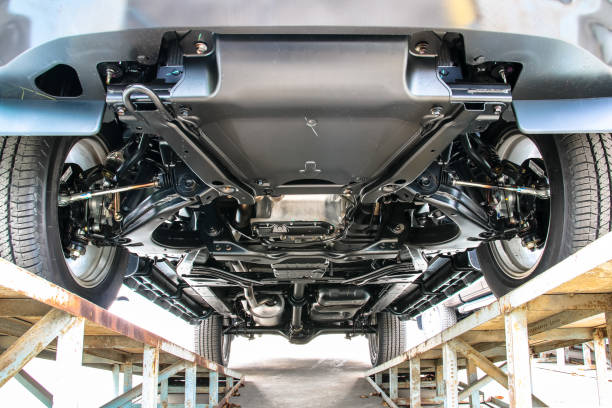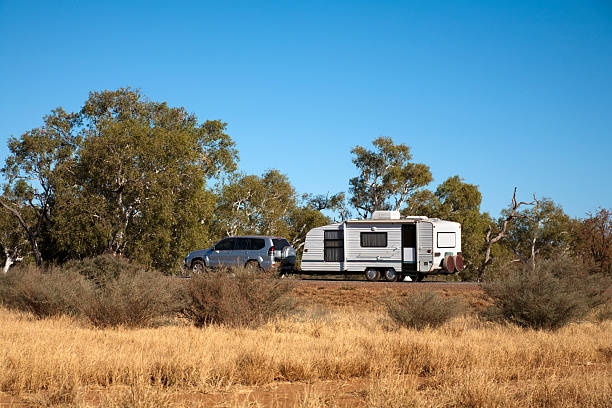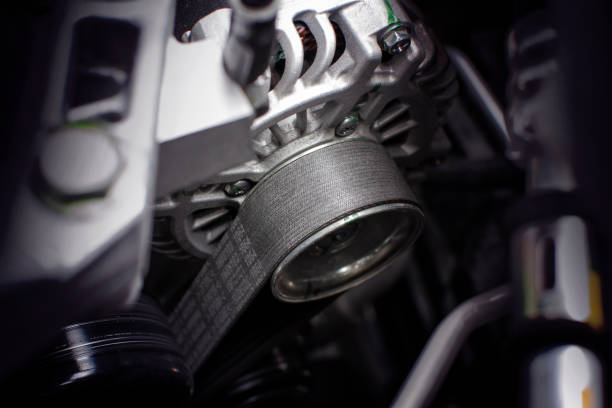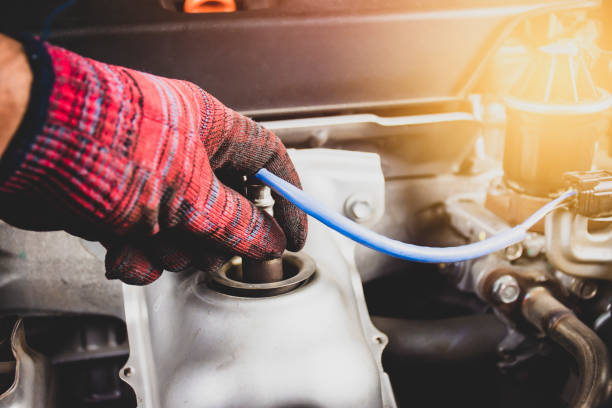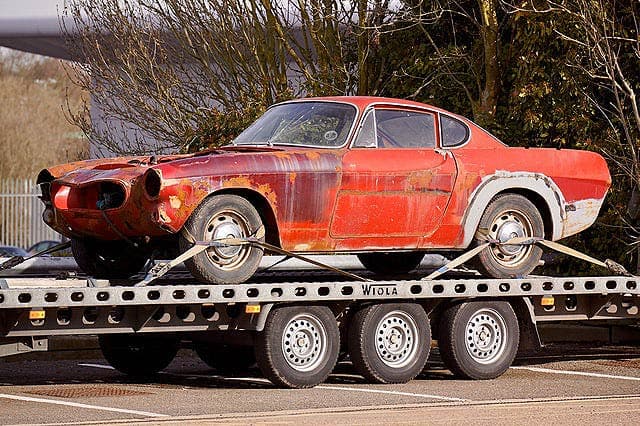
It is never a pleasant experience to have your car impounded. It usually happens by surprise and you are left with trying to figure out what happened. Then the stress starts to set in as your wonder to yourself…
What if I can’t afford to get my car out of impound?
- Start by communicating with the impound lot that has your car.
- See if they have payment plans or any type of financing.
- Otherwise, you will have to seek financial help elsewhere or risk forfeiting your car to settle the debt.
- Note: there are times when the value of the car may not cover the full debt of the impound fees. Start working on the problem right away to lessen the fees.
We all have challenges from time to time. Your car getting impounded can certainly be a challenge. In this article, I am going to share with you how to tackle the problem and different methods that may help you if you can’t afford to get a car out of impound.
How does a car get impounded?
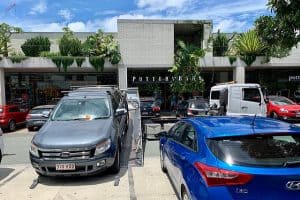
Photo by Kgbo / CC BY-SA 4.0
Vehicle impounding is the process of legally seizing cars and placing them in an impound lot or towing yard until reclaimed by the owners, auctioned off, or sold for scrap. An impounding agency, which can be a police department, can impound your car for any number of reasons, such as:
- When you are under arrest for a traffic violation, like driving under the influence of alcohol, and no one else is present or able to drive the car safely from the location.
- If your car is determined to be abandoned. An abandoned car is one that has been left sitting on public or private property for a period as defined by local statutes.
- If your car is involved in a crime or it is itself potential evidence of a crime such as vehicular manslaughter and drug smuggling.
- Several unpaid parking tickets.
- Illegal parking, for instance, parking in a fire zone, on a sidewalk, in front of a fire hydrant, or in a handicap zone without an appropriate permit.
Police officers can search an impounded vehicle in what is known as an inventory search. Inventory searches do not require a warrant or probable cause as they are not carried out in search of evidence.
They are a way for police to create an inventory of the contents of the vehicle to protect you from theft and protect them from theft allegations. An inventory search also protects the police from any hidden dangers in the car, such as weapons and explosives.
How to get your car out of impound

Photo : flickr
Getting a car out of impound is never easy. You may stand in line for hours only to find out that you do not have enough funds, or the right paperwork to get your car out of the impound. While requirements vary according to jurisdiction, there are some commonalities.
Locate your vehicle
Depending on the circumstances, you may be clueless about your car’s location. If the vehicle was impounded as a result of your arrest, the police will likely inform you of its location. But if you were not present when the car was getting towed, be prepared to do some research.
If the car was parked illegally, ask which towing company nearby businesses use when cars are in violation. You can also visit the city’s towed vehicle locator website, as most cities have one. Additionally, contact the city or county office and enquire if your vehicle was recently listed as impounded.
If, after 24 hours, you have still not found your car:
- Give it some time and call again after a few hours as the lot may not have processed it yet, given it may have just been towed. It may take 48 hours to register.
- There may be a chance that your car has been stolen if had left it in an unfamiliar location. Within 24-48 hours, it may show up in a city or police database.
Call the impound lot
Before rushing off to pick up your car, call the impound lot to ensure it is indeed there. Additionally, inquire what is needed to get the car returned to you. Calling beforehand saves you the frustration of waiting for hours only to find out you do not have enough money or the right paperwork.
Requirements for recovering an impounded vehicle
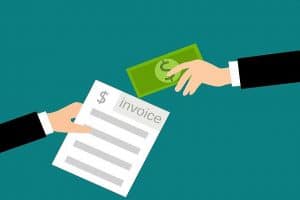
When you contact the impound lot, they will inform you of what is required to get your vehicle returned, which includes:
Payment. Each day your car sits at the impound lot, you are accumulating hefty fees. Costs vary across the country but expect fees like towing, storage, release fees, flatbed/bed fees, outstanding parking fines, and other miscellaneous costs. Ensure to ask what forms of payment the lot accepts (cash, check, and or credit).
Paperwork. The required paperwork varies depending on what led to your car’s impoundment. For instance, reckless driving, road rage, driving under the influence, or illegal parking could all required different paper forms to be filled out. You may be asked to bring your driver’s license, vehicle registration and or title, and proof of insurance.
If a towed vehicle goes unclaimed by the owner within a given length of time, it is usually destroyed or sold at auction. Now, if the money received from the auction sale is not enough to cover the towing, storage, and auction fees, the last known registered owner is held liable for the unpaid debt.
Note: In some cases, a vehicle must remain impounded for a specified period before the owner is allowed to reclaim the car.
What if I can’t afford the impound fees?

No one has some “just in case my car gets towed” money set aside. So, when it comes to retrieving your car from the impound, you might find yourself a few hundred dollars short. Worse off, impound lots usually charge daily fees for storing your vehicle, which means the longer your vehicle remains in impound, the more you’ll have to pay to get it out.
Tips for coming up with additional funds
Here are some suggestions on ways to get extra money:
- Ask for help from a friend or a family member, maybe one that owes you a favor.
- Sell something of value quick, such as old games, college textbooks, used electronics, jewelry, vintage stuff, or extra furniture and home appliances. You can use sites such as Amazon, eBay, Craigslist and Etsy to list the items for sale.
- Ask for an advance paycheck from your employer and explain why.
- Cash advance on a credit card or personal loan from a bank or credit union.
Alternatively, you might consider:
Applying for help from assistance programs. Charities, non-profit organizations, community action agencies, and churches can help you pay for unexpected expenses. However, this financial assistance is rare and only covers vehicle impoundment resulting from non-criminal activities like unpaid insurance and expired registration. Most of the free legal aid services that are available will not help people that were involved in a crime, regardless of whether the client has no cash or income available to them.
Although uncommon, an assistance program may help you if having your car impounded puts you at risk of losing your job due to lack of transportation. You are, however, more likely to get a loan from a community action agency, especially if you are employed and just in need of temporary help. Some agencies may agree on using the funds to pay the impound fees, speeding or parking tickets, and DMV registration costs.
Applying for a payday loan. Using this approach for money to get your car out of the impound should be your last resort as it is high-risk. Nevertheless, if you are employed but have no money to pay the impound fees, it is worth considering. Should you take out a payday loan, ensure you can (and will) pay it off with your next paycheck.
Note: Payday loan lenders charge their borrowers a very high level of interest. However, some states now regulate the origination fees as well as interest rates these lenders can charge.
What if I do not have car insurance?
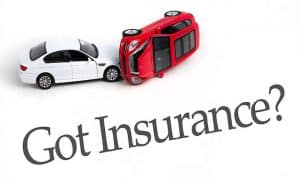
Photo : flickr
There is a strong possibility you will be asked to provide proof of insurance at the impound lot. Proof of insurance verifies that your car is insured, and it shows:
- the insurance carrier
- the named insured
- the policy period
- the make, model, and year of the car
- 400;”>vehicle identification number (VIN) of the vehicle covered by the policy.
Proof of insurance is usually in the form of a card issued to you by your auto insurance company. You can also print out a paper copy from any computer printer. Various states also accept electronic proof of insurance, where you display your insurance identification card on your smartphone via a mobile app. Call the impound lot to confirm if they accept electronic proof of insurance before going to pick your car.
In most states, you are required to carry proof of insurance whenever you are driving on public roads. Consequently, if a police officer pulls you over and you are unable to provide proof of insurance, your car may be impounded. So, this explains why the impound lot will not release your vehicle without proof of insurance.
If you do not have car insurance on the impounded vehicle, and it is one of the requirements for retrieving it, here is what you need to do.
- Shop around for car insurance. For the best deal, get at least three car insurance quotes from insurance companies. And since you may be considered a high-risk driver for driving without insurance, focus on insurance companies that specialize in high-risk drivers.
- Get insurance coverage. You only need your state’s bare minimum coverage to get your car out of impound. Nevertheless, check different coverage amounts to ensure you get the best possible coverage for the best possible rate.
- File an SR-22 form. If you considered a high-risk driver and are trying to get your driver’s license reinstated, you may need to file an SR-22 form with your state’s Department of Motor Vehicles (DMV). The price varies by state so check your local area to be sure of the cost.
- Get proof of insurance once you make your first insurance down payment. Once you make the down payment, your insurer will fax or email the proof of insurance to you and you can print it on your own. If allowed, you can show it on your phone. Once you have proof of insurance, pick up your car ASAP.
Conclusion
If you are reading this article, odds are you aren’t preparing for a future impounding. You have already found yourself in a tough spot. You need to know that you are not the first person to face this situation and many people have made it through this challenge in their lives. You can manage it too. This article was written to help you.
Follow the article and track down the car. Find out what it will take to get it back to your home. Then use the methods mentioned to come up with the cash needed if you don’t have it in savings. It is very easy these days to sell items on the internet for quick cash.
You can also visit a local pawn shop and get a temporary loan on an item you may not be wanting to sell permanently. The pawn shop will keep the item only until you repay the loan but time will be limited on how long they wait.





